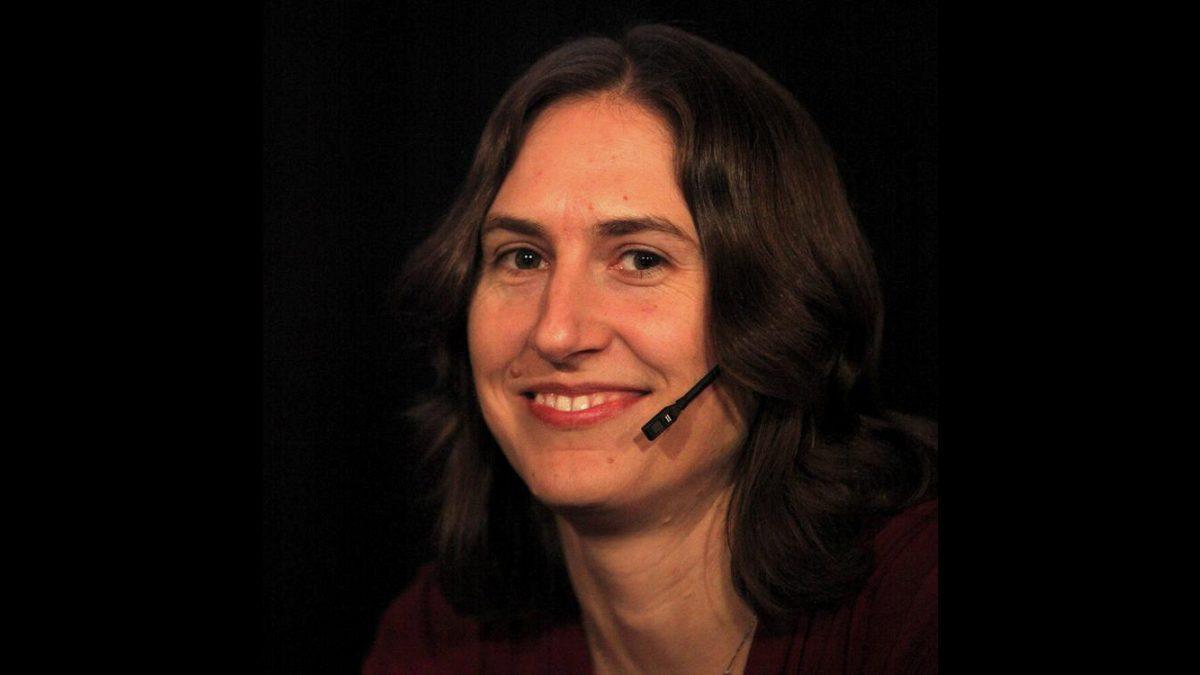Who do you think of when someone is described as down-to-earth, funny, entertaining, influential on social media and has a Hozier song written about them? Chances are, it isn’t a physicist. However, Katie Mack, assistant professor of physics at NC State, is breaking those stereotypes.
Mack studies cosmology, or, as she describes it, “the big questions about the universe, beginning to end, and all of the stuff in it.” Even though she has a Ph.D. from Princeton University in astrophysics, she doesn’t look at telescopes all day. She approaches cosmology from a theoretical standpoint and has recently been focusing a lot on the end of the universe. This focus has led to her most recent book, “The End of Everything (Astrophysically Speaking).”
“The parenthetical is to emphasize that it really is about everything,” Mack said. “We’re being quite literal there. It’s about the end of the universe and how that might happen, what it might look like, how physicists and astronomers are trying to figure out what the end of our cosmic story will be.”
According to Mack, the book discusses five possibilities for what the end of the universe may look like while also discussing the methods, techniques and research that physicists use to even think about these possibilities.
“It’s a fun thing to study because you get to study these big, powerful, destructive forces, but it’s also enough removed from everyday life that it’s not depressing,” Mack said.
Physics, and astrophysics in particular, has long been thought of as something illusory unless you have a college degree, but Mack can almost be thought of in a similar way to big physics names like Neil deGrasse Tyson, Stephen Hawking and Carl Sagan. She is working to bring physics into the homes and everyday conversations of readers.
As a member of the Leadership in Public Science faculty cluster at NC State, Mack works to bring science “out into the open” and make it accessible for nonscientists. She writes her book assuming the reader has minimal knowledge of physics.
Mack believes the end of the universe is an interesting topic for everyone because of humanity’s innate curiosity about where we came from and where we are going. She also feels that being able to explain the end of the universe may give scientists more insight into the beginning of the universe. However, she does feel like there is a bit of a metaphysical aspect to the curiosity, too.
“There’s this sense that the end of the story may give us this idea of what it all means or how we should live,” Mack said. “That’s a very common idea in religious thinking and a very common idea in just the way that we think of the future. What’s it all going to mean at the end, and what’s that mean about how we should be living now? Is there meaning in life if it will all be over some day?”
Mack’s success at connecting science to the public can be evidenced in her, at the time of this writing, 368,500 Twitter followers. She has even attracted a follow from some celebrities and other Twitter blue checks, including Rachel Maddow, Hank Green, Hozier, Chrissy Teigen and many verified scientists, but the follow that most excited her was Ava DuVernay. Mack felt that DuVernay’s follow showed she was no longer just popular in her field.
Hozier referenced Mack in his 2019 song, “No Plan.” The lyrics, “As Mack explained, there will be darkness again,” allude to the short amount of time the couple in the song have together, so they must make the most of it. Hozier’s lyrics seem to encapsulate the exact metaphysical ideas Mack said drew her to the study of the end of the universe.
“I was already a fan of his work,” Mack said. “I enjoyed his music before I even got to know him. Now to be in a position where he’s clearly a fan of my work, that’s just odd, but in a good way.”
This large platform comes with pressure to be a good role model, which is stressful, Mack said.
“It’s a huge responsibility,” Mack said. “I feel a great deal of pressure all of the time to be a positive influence and to make sure that I’m being fair and considerate and not saying anything that would adversely affect people who might look up to me in some way. It is something that I’m always wrestling with: how to best fill that role.”
Mack is grateful to NC State for allowing her, a nontenured professor, to focus on writing a book instead of writing a large amount of research papers, as professors without tenure are generally encouraged to do.
For readers who are worried that the book may be too heavy, Mack wants them to know that her book may deal with big topics, but she doesn’t feel like it’s depressing.
“It’s very lighthearted,” Mack said. “It can be used as beach reading if you want.”



















